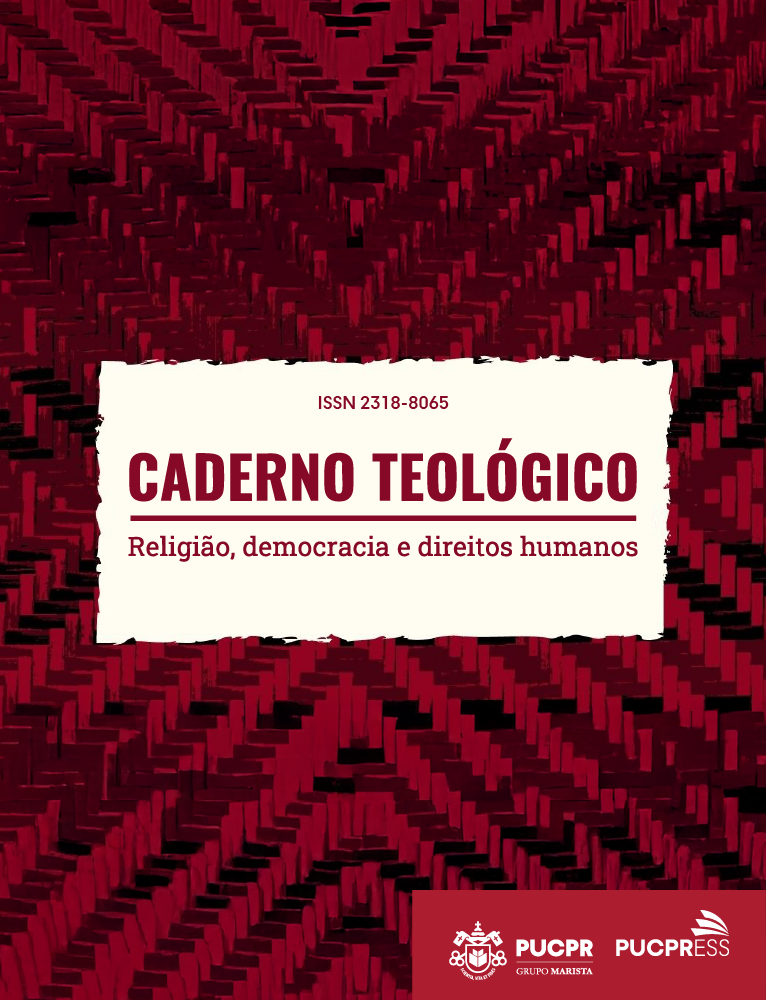Amor e justiça: uma abordagem hermenêutica a partir da tradição cristã | Love and justice: an hermeneutical approach drawing from Christian tradition
DOI:
https://doi.org/10.7213/2318-8065.06.01.p66-80Resumo
O objetivo deste estudo é mostrar de que maneira o amor pode ser melhor integrado à prática da justiça. A hipótese deste trabalho, que possui como referencial teórico principal o filósofo francês Paul Ricoeur (1913-2005), consiste na ideia de que o amor está associado à justiça pelos laços do desejo, ou seja, o amor exige a justiça. Entretanto, a dialética entre amor e justiça é caracterizada por um conflito e uma desproporção. Em resumo, na obra ricoeuriana, há uma conexão conflitiva entre amor e justiça, na qual o amor é colocado no âmbito da subjetividade e a justiça no contexto das leis ou normas. Frequentemente, Ricoeur vê o amor a partir do contexto da fé bíblica e consequentemente o amor é colocado em um nível transcendente, sendo governado pela lógica da superabundância. Já a justiça é explicitada a partir de um contexto estritamente humano, sob a ótica da lógica da equivalência. Por meio dessa dialética, Ricoeur afirma a desproporção inicial entre ambos os termos (amor e justiça) ao mesmo tempo em que busca mediações práticas entre eles.
The objective of this study is to show how love can be better integrated into the practice of justice. The hypothesis of this work, which has the French philosopher Paul Ricoeur (1913-2005) as its main theoretical framework, consists in the idea that love is associated with justice through the bonds of desire, that is, love requires justice. However, the dialectic between love and justice is characterized by conflict and disproportion. In summary, in the ricoeurian work there is a conflicting connection between love and justice, in which love is placed in the scope of subjectivity and justice in the context of laws or norms. Ricoeur often sees love from the context of biblical faith and consequently love is placed on a transcendent level, being governed by the logic of overabundance. Justice is explained from a strictly human context, from the perspective of the logic of equivalence. Through this dialectic, Ricoeur affirms the initial disproportion between both terms (love and justice) while looking for practical mediations between them.
Downloads
Referências
BENTO XVI. Carca encíclica “Deus Caritas Est”. São Paulo: Paulus; Loyola, 2006.
QUEIRUGA, André Torres. Do terror de Isaac ao Abbá de Jesus: por uma nova imagem de Deus. São Paulo: Paulinas, 2001.
RAMPAZZO, Lino e DIAS, Mário José (orgs.). O conceito de justiça em Paul Ricoeur. Curi-tiba: Editora CRV, 2015.
RICOEUR, Paul. A hermenêutica bíblica. São Paulo: Loyola, 2006.
RICOEUR, Paul. Amor e Justiça. Lisboa: Edições 70, 2010.
RICOEUR, Paul. Ética e Moral. Covilhã: UBI, 2011.
RICOEUR, Paul. História e Verdade; trad. F.A. Ribeiro. Rio de Janeiro: Forense, 1968.
RICOEUR, Paul. Leituras 1: Em torno ao político. São Paulo: Loyola, 1991.
RICOEUR, Paul. Leituras 3: Nas fronteiras da filosofia. São Paulo, Loyola, 1996.
RICOEUR, Paul. O si-mesmo como outro. São Paulo: Editora WMF Martins Fontes, 2014.
RICOEUR, Paul. Percurso do reconhecimento. São Paulo: Loyola, 2006.
TAYLOR, Charles. “Por qué necesitamos una redefinición radical del secularismo”. In: HA-BERMAS, Jurgen; TAYLOR, Charles; BUTLER, Judith; WEST, Cornel. El poder de la reli-gión en la esfera pública. Madrid: Editorial Trotta, 2011.









